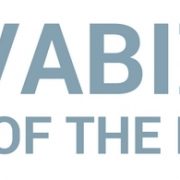Five Good Things to Know About Virginia’s New Pass-Through Entity Tax Law
1. What is the PTE Tax Law? Virginia’s PTE tax law, enacted in 2022, allows a qualifying pass-through entity (“PTE”) to make an annual election for tax years 2021 through 2025 to pay income tax at a rate of 5.75% at the entity level.
2. What is a Qualifying PTE? A PTE that qualifies to make the election (a “qualifying PTE”) is one that is 100% owned by natural persons, or, in the case of an “S” corporation, 100% owned by natural persons or other persons eligible to be shareholders in an “S” corporation. An entity that is disregarded as separate from its owner for federal income tax purposes, such as a single-member limited liability company or a qualified subchapter S subsidiary, is not a qualifying PTE. However, if a disregarded entity is an owner of a PTE, the disregarded entity is ignored in determining whether the PTE is owned 100% by natural persons.
3. What is the Primary Benefit of the PTE Tax Law? The law provides a corresponding refundable income tax credit for tax years 2021 through 2025 for any amount of income tax paid by a qualifying PTE having Virginia taxable income if the PTE makes the election and pays the elective income tax imposed at the entity level. The law allows the qualifying PTE to shift the income tax burden from the PTE owners to the PTE itself.
4. How Do You Make the Election Under the PTE Tax Law? There are three ways for a qualifying PTE to elect to pay the PTE tax (“PTET”) for the tax year, including:
(i) During tax year 2023 and thereafter, making an estimated payment of PTET
for the tax year;
(ii) Making an extension payment of PTET for the tax year; or
(iii) Filing a PTET return (“Form 502PTET”) on or before the extended due date
for the tax year.
Virginia does not require any specific method for an electing PTE to obtain consent from its owners, so such consent should be obtained pursuant to the PTE’s governing documents. Note, however, that once the election is made for a given year, it is binding on all owners. An owner of a PTE does not have the ability to “opt-out” if the PTE makes the PTET election.
5. What are the Filing Requirements Associated with PTET? First, the PTET return (Form 502PTET) is due on the 15th day of the fourth month following the close of the tax year. A calendar year filer’s return is due by April 15, however, such returns may be automatically extended six months to October 15. PTET returns must be filed electronically and signed by an owner, officer or employee of the PTE who is authorized to sign on behalf of the PTE in tax matters.
Although returns may be automatically extended, taxes are due at the original filing date. An electing PTE must pay at least 90 percent of its PTET due by the original due date of its return or be subject to an extension penalty. The extension penalty is 2 percent per month, up to a maximum of 12 percent of the tax due. The electing PTE must notify its owners that the election has been made and provide each owner a completed Schedule VK-1 so the owners can complete their Virginia tax returns.
For tax years 2023 and beyond, estimated payments are required if the PTE’s tax liability is expected to exceed $1,000. Calendar year taxpayers are required to make quarterly estimated payments by April 15, June 15, September 15, and December 15.
Second, an owner of an electing PTE may claim a refundable PTET credit against the owner’s Virginia individual income tax. Owners claiming a PTET credit on their individual income tax return must make an addition equal to the amount of PTET credit claimed. Owners may not claim a PTET credit until they have received Schedule VK-1 from the electing PTET. If an electing PTE does not issue Schedule VK-1 before the due date of an owner’s return, the owner may file the owner’s return on extension or file a return without claiming the credit and file an amended return after receiving Schedule VK-1.
In summary, if you are a Virginia small business owner, this new law potentially offers a new tax savings opportunity that you will want to discuss with your accountant as soon as possible. Click here for guidance published by the Virginia Department of Taxation. Good luck!







Leave a Reply
Want to join the discussion?Feel free to contribute!